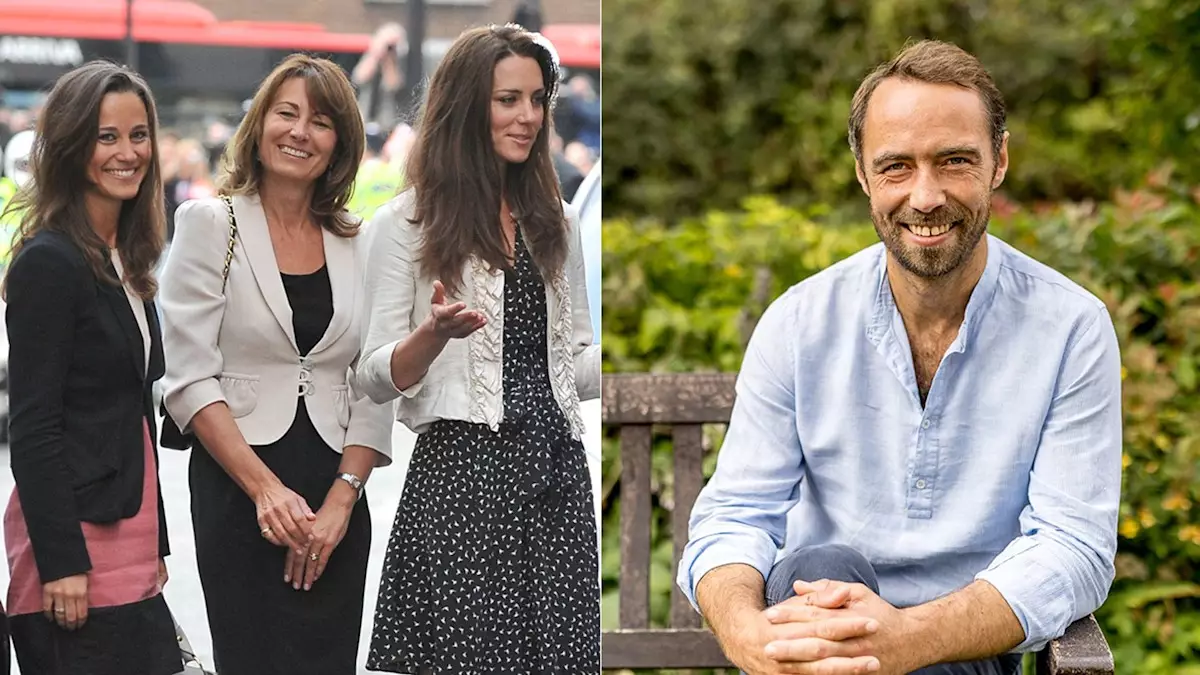In an era where mental health awareness is becoming increasingly prevalent, the narratives surrounding individual struggles and the importance of support systems are quintessentially significant. James Middleton, brother to the Princess of Wales, recently shared a transformative chapter of his life, shedding light on the profound impact his family had during his battle with depression. In a heartfelt interview, he chronicled how his sisters, Kate and Pippa, played pivotal roles in bridging communication gaps between him and their parents, Carole and Michael Middleton. This insight into familial dynamics showcases one of the core tenets of mental health recovery: that no one should face their struggles alone.
James emphasized the complicated nature of mental health, illustrating that even well-meaning family members can initially misinterpret a loved one’s silence. He observed that his parents felt burdened by guilt and believed they had somehow failed him. This common misconception manifests in many families, where loved ones often irrationally assume responsibility for the mental health challenges faced by their relatives. The presence of James’ sisters during therapy sessions served as a gentle mediator, helping to alleviate feelings of self-blame within the family unit and facilitating healthier conversations about his mental health.
The process of dismantling stigma and fostering open dialogue is paramount in a family grappling with mental illness. James noted how therapy became a tool for not just diagnosis but understanding—a medium through which they could navigate the oft-turbulent waters of mental health issues together. The realization that his depression stemmed from complex interactions and childhood experiences, instead of a singular event, was a cathartic breakthrough for James and his family. Conversations that once felt daunting and layered with emotion were transformed into manageable discussions.
As these dialogues became commonplace, it allowed the Middleton family to nurture a culture of openness. This shift is particularly significant, as families often shy away from discussing mental health due to fear or embarrassment. Now, as James remarked, these subjects can be comfortably shared at family dinners, suggesting that they have made strides toward destigmatizing mental health within their familial discourse.
Before bringing his struggles to light, James battled with his depression in silence, an experience many can relate to. It was through professional guidance that he began to unravel the depths of his mental health challenges. His new book, “Meet Ella: The Dog Who Saved My Life,” narrates not only his battle with depression but also the crucial companionship offered by his cocker spaniel, Ella. This bond exemplifies how animals can profoundly influence human resilience, providing not just companionship but also purpose. In his narrative, James equated his mental state to a “cancer of the mind,” illustrating the pervasive nature of his anxiety and lack of motivation.
Ella, who came into James’s life at a pivotal moment, became a stabilizing force, reminding him of the beauty of life and the reasons to keep pushing through the fog of his mental illness. He poignantly reflects, “Only Ella gave me cause to keep living,” demonstrating the remarkable impact that a pet can have on one’s mental health and overall well-being.
In light of his experiences, James Middleton is not merely a passive storyteller; he is also taking active steps in advocacy. He is partnering with Dogs Trust for the inaugural ‘Walk for Our Old Friends’ (WOOF) event, a tribute to dogs that have offered companionship and support throughout their owners’ lives. This initiative highlights the intimate relationship between emotional well-being and animal companionship, encouraging others to remember and cherish their pets, while also raising awareness about mental health.
James Middleton’s candid revelations provide valuable insight into the healing power of familial support and the bonds we forge with our pets in times of distress. His journey serves as a reminder that mental health conversations must extend beyond individual experiences—encompassing whole families and communities. By embracing openness, they can inspire others to seek help and foster a supportive environment, ultimately contributing to a broader culture of understanding and compassion around mental health.


Leave a Reply